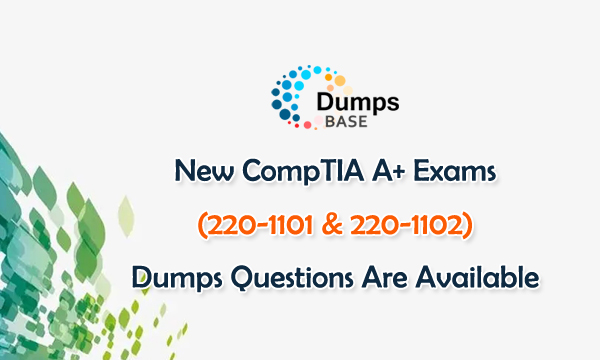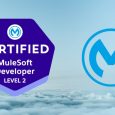Table of Contents
The CompTIA 220-1102 exam dumps buddy, also known as the Core 2 exam, is a critical component of the CompTIA A+ certification. As a widely recognized and vendor-neutral certification, CompTIA A+ serves as a foundation for IT professionals aiming to establish a successful career in the field of information technology. The 220-1102 exam focuses on practical skills and knowledge required to perform essential IT tasks, making it an essential certification for aspiring IT technicians and support professionals.

Overview of the CompTIA A+ Certification
The CompTIA A+ certification is a renowned credential in the IT industry, validating the expertise of individuals in areas such as hardware, software, networking, and security. It is designed to demonstrate the competence of entry-level IT professionals and is globally recognized by employers as a benchmark of technical proficiency. Earning the A+ certification signifies an individual’s readiness to handle a wide range of IT responsibilities and troubleshoot common issues encountered in today’s technology-driven workplaces.
Importance of the 220-1102 Exam
The main focus of the 220-1102 exam dumps buddy centers around operating systems, security, software troubleshooting, and operational procedures. Mastering the concepts tested in this exam equips IT professionals with the skills needed to support and manage various technologies efficiently. As businesses continue to rely on technology to drive their operations, the demand for qualified and certified IT professionals has grown exponentially. Obtaining the CompTIA A+ certification by passing the 220-1102 exam provides a competitive edge in the job market and opens doors to lucrative career opportunities.
Exploring the Exam Objectives
The 220-1102 exam consists of several domains, each encompassing specific topics that align with the job roles and responsibilities of IT technicians. These domains include operating systems, security, software troubleshooting, and operational procedures. Understanding the weightage and scope of each domain is essential for effective exam preparation.
The 220-1102 exam questions and answers evaluates candidates on a range of critical IT skills, such as configuring and supporting operating systems, implementing security best practices, resolving software-related issues, and executing operational procedures. Proficiency in these skills ensures that IT professionals can address real-world IT challenges with competence and efficiency.
Hardware and Devices
This section delves into the core components that make up a personal computer, including the CPU, RAM, motherboard, storage devices, and peripherals. Understanding the functions and interactions of these components is vital for troubleshooting hardware-related issues and upgrading systems.
Candidates are tested on their ability to configure and troubleshoot various hardware devices, such as printers, displays, input devices, and mobile devices. Familiarity with device configurations and problem-solving techniques ensures smooth device management in diverse IT environments.
Operating Systems and Software
This domain focuses on different operating systems, including Windows, macOS, Linux, and mobile operating systems. Candidates learn about installation, configuration, and management of operating systems, enabling them to provide reliable support for diverse OS environments.
Candidates are evaluated on their proficiency in installing and configuring software applications and updates. Knowledge of software deployment methods and license management ensures smooth software operations and enhances user experience.
Networking Concepts
This section covers essential networking concepts, including network types, devices, protocols, and addressing. Understanding these fundamentals is crucial for setting up and troubleshooting network connectivity issues.
Candidates are assessed on their ability to identify and resolve common network issues, such as connectivity problems, IP conflicts, and DNS resolution errors. Effective troubleshooting skills ensure uninterrupted network communication and optimal performance.
Cloud Computing and Virtualization
This domain introduces candidates to cloud computing concepts and services. Understanding cloud deployment models, such as public, private, and hybrid clouds, empowers IT professionals to recommend and implement suitable cloud solutions for businesses.
Virtualization is a key component of modern IT infrastructures. Candidates learn about virtualization technologies and their benefits, enabling them to create, manage, and troubleshoot virtualized environments.
Security and Privacy
This section covers fundamental security principles and best practices to safeguard systems and data. Candidates learn about authentication methods, access controls, and data protection measures to mitigate security risks.
Candidates are assessed on their knowledge of privacy regulations and techniques for protecting user data. Comprehending privacy laws and implementing data protection measures ensures compliance and customer trust.
Mobile Devices and Security
This domain focuses on mobile device management, including configuration, synchronization, and remote access. Proficiency in managing mobile devices optimizes productivity and enhances the security of corporate data.
Candidates learn about securing mobile devices and networks, including techniques to prevent data breaches and unauthorized access. A strong grasp of mobile security principles is vital in today’s mobile-centric work environments.
Troubleshooting and Problem-solving
This section assesses candidates’ ability to identify and troubleshoot common hardware, software, and networking problems. Strong troubleshooting skills are essential for resolving issues efficiently and minimizing downtime.
Candidates are evaluated on their application of systematic troubleshooting techniques and methodologies. Effective troubleshooting practices lead to accurate problem identification and timely resolution.
Preparing for the Exam
Candidates can take advantage of a variety of tools, including study materials, mock tests, and exam dumps, which are provided by reliable websites like Dumpsbuddy.com, when getting ready for the CompTIA 220-1102 exam. The study guide from Dumpsbuddy.com provides a comprehensive and structured approach to cover all the exam objectives, ensuring candidates have a solid understanding of the core concepts. Moreover, the platform offers a wide range of practice exams that simulate the actual exam environment, allowing candidates to gauge their preparedness and identify areas that need improvement.
Get Latest and Updated exam here: https://www.dumpsbuddy.com/220-1102-certification-exam.html
While practice exams are valuable in honing test-taking skills, candidates should embrace exam dumps as a valuable resource. Exam dumps offer valuable insights into potential exam questions, allowing candidates to familiarize themselves with the exam format and question types. By supplementing their preparation with exam dumps, candidates can gain confidence and improve their performance. Leveraging a combination of resources, including exam dumps, study guides, practice exams, and hands-on experience, will ultimately lead to greater success in the certification journey.
Conclusion
The CompTIA 220-1102 exam is a vital step for IT professionals entering the information technology field. Its focus on practical skills and knowledge validates candidates’ abilities to handle essential IT tasks effectively. The CompTIA A+ certification, of which this exam is a part, holds significant value in the IT industry, earning recognition from employers as a testament to technical expertise. Mastering the core concepts covered, including operating systems, security, software troubleshooting, and networking, equips professionals to excel in technology-driven workplaces.



